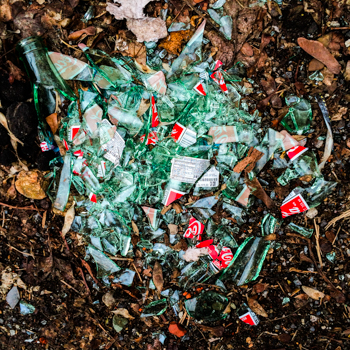 With our third foster baby I begin dreaming of bruised women, women I have to help up the stairs, their egos battered, terrible mothers, until I notice that they are not the birthmothers, they are me.
With our third foster baby I begin dreaming of bruised women, women I have to help up the stairs, their egos battered, terrible mothers, until I notice that they are not the birthmothers, they are me.
I think of something the church people used to say when I was growing up: be grateful for what you have. It may not have followed exactly like that, two after one, or one after two, but I think of Ebony, the six-year-old I became friends with when I was seventeen during a summer spent with Southern Baptist missionaries in Detroit. The beads in her hair clicked when she ran and a birthmark spread across one eyelid and cheek, blooming like a light pink dahlia on her violet skin. I was a sun-burned shade of white that summer, and each morning I arrived at her doorstep with six other young Southern Baptists to play games with the children of the projects, pray, and pass out snacks.
I want lighter skin, my black-brown son says, the one we got to keep, but when I ask him why, he cannot, at three years old, say. He says, I have darker skin, and then points to my arm and says, you have darker skin. No, I say, I have lighter skin. We both have lighter skin, he says pointing to his palms, and I say, yes, we do. You wish we could look the same, I say. Yes, he says.
It is a brutalized beauty we live with. It’s getting harder to remember all the names: Michael, Freddie, Trayvon, Walter, Eric, Oscar, Ezell. When we walk to school and my son wears a hoodie, I think he must be safe since he is only three feet tall and with his white mother. But when he is older, I won’t let him walk with a hoodie anymore. Maybe I will teach him not to run.
In Detroit, I watched steam rise from the manholes each cool morning as the sunlight was breaking past buildings, and we rode over streets that just thirty years earlier had been on fire. The white career missionary picked me up in the suburbs, and the white family I lived with had a pool and big shade trees, and let us swim whenever we wanted. One Sunday morning the summer missionaries and I attended a black Baptist church in the city. When we were introduced as Southern Baptists, the congregation hummed. That’s when I first learned why Baptists had split during the Civil War. And on humid, sunny Sunday afternoons hanging out with the college boys in our group, I was self-conscious in my bathing suit, wondering if I was too fat or too skinny as I ate hot dogs and chips under the American Elms.
With the third foster baby now there is this other mommy, which is what we call her ____’s other mommy, and there are visits each week at her facility in a neighborhood where our city often finds reason to cut down trees but fails to replant them, where neighborhood folks suffer from a lack of trust, a place where the police question my white husband when his car breaks down on his way home from one of these visits, and because he has a black baby in the back seat, the officer is confused. And when my husband says he doesn’t know why the engine died, and the officer yells again and again, Explain to me why you don’t know how to operate your own car, sir, and even after my husband has exited the car and is standing on the side of the road, the officer continues yelling, but now a neighbor has come to help, and is in the car offering to move it out of the street traffic, and the officer of the law is yelling at the neighbor now, saying give me the keys, but should this brown man reach in his pocket where he has put the keys? Should the white father with the beautiful, fat, black baby in his arms stay neutral on the sidewalk?
Sometimes we try to imagine our way into the lives of others, the prostitutes and dealers, the pimps and the poor, whom I was taught we will always have with us, implying a futility in the fight, and the gratitude makes you feel better for choosing not to fight.
__
Kate Martin Rowe’s poems have appeared in The Beloit Poetry Journal, Hotel Amerika, Askew, Zyzzyva, VOLT, Denver Quarterly, and Chaparral and have won an Academy of American Poets prize and the Rachel Sherwood Poetry Prize. She is currently studying for an MFA in creative nonfiction at the Bennington Writing Seminars and teaches writing at Glendale Community College. She lives in Los Angeles.
Photo by Heather Kresge

2 comments
Deirdre Mendoza says:
May 18, 2017
So beautiful and thoughtful. Worlds imagined and understood.
Garrett says:
Oct 20, 2017
Awesome read. That’s so crappy how the officer was yelling at your husband.